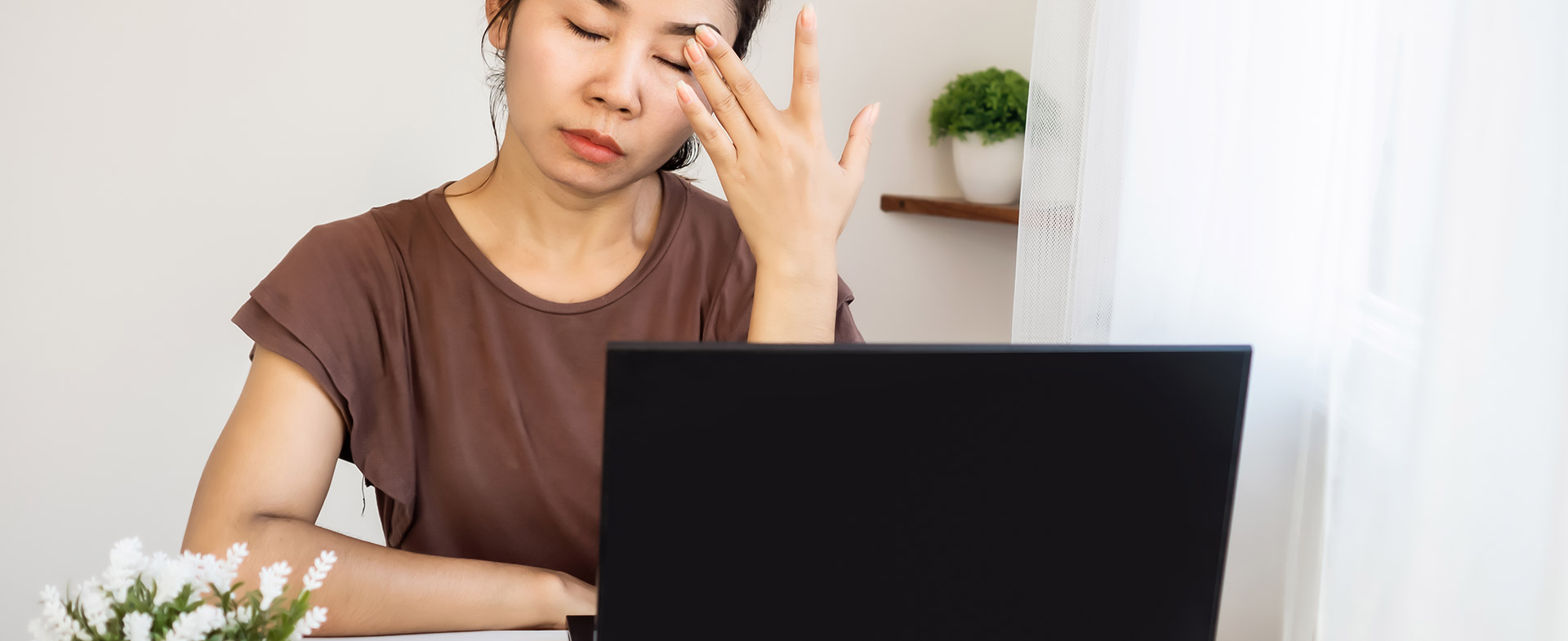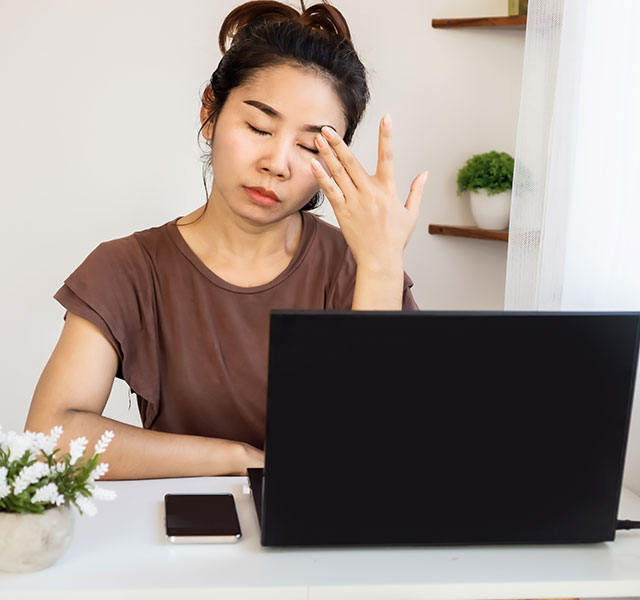You know those days where you thought you got eight hours of sleep, but when you wake up the next morning, you don’t feel refreshed or rejuvenated at all? (And even caffeine doesn’t seem to help?) Turns out, it might not be in your head.
“It could be an undiagnosed sleep disorder,” says Philip Cheng, Ph. D., a clinical psychologist and research scientist at the Sleep Disorders and Research Center at Henry Ford Health. And if you suspect it is, you should see a doctor. But if you don’t have a sleep disorder, there are still several factors that can make you feel groggy in the morning, even if you think you have gotten enough rest. Here, six reasons why you could be tired in the morning:
- It’s raining. When you wake up to a gloomy, rainy day, it can be difficult to get out of bed because there’s less sun. The lack of sun causes our bodies to produce less serotonin (that’s the hormone that energizes us and makes us feel happy), so you may need an extra cup of coffee and some peppy music in order to get going.
- Your hormones are in flux. For those going through monthly menstrual cycles, your changing hormones can affect how well you sleep and how restful you feel after sleeping, says Sana Zuberi, M.D., a primary care physician with Henry Ford Health. You might find that during the second half of your menstrual cycle, when your estrogen levels peak and quickly drop, you feel groggy and tired. An iron deficiency paired with a loss of blood during your menstrual cycle can also lead to fatigue. And an under or overactive thyroid can affect your sleep. If you have hypothyroidism (when your thyroid doesn’t make enough hormone), you might feel tired often. If you have hyperthyroidism (when your thyroid gland makes too much hormone), it might be difficult to get to sleep.
- You have a caffeine dependency. The more caffeine you drink, the higher your tolerance will become. In other words, that one cup of coffee that used to give you the perfect jolt now just barely gets your eyes open. Caffeine also represses our adenosine receptors, and adenosine makes us feel sleepy. So while we’re drinking coffee, we feel awake, but after the caffeine wears off, all of that built-up adenosine leaves us feeling tired. (And likely reaching for another cup of coffee!)
- You drank alcohol the night before. You don’t have to binge drink or stay up late partying for alcohol to interfere with your sleep. Even if you had a nice, quiet dinner party with wine, the wine could affect your quality of sleep. "While alcohol can make it easier to fall asleep, the process of digesting alcohol can fragment your sleep or reduce the quality of your sleep throughout the night," says Dr. Cheng. So you may feel groggy when you wake up, even after plenty of time in bed.
- You didn’t eat a substantial breakfast. Choose your breakfast wisely: eating a donut or a bowl of sugar cereal might give you an immediate boost but will likely make you crash and feel super tired mid-morning. For a breakfast that will leave you energized and full, make sure it includes healthy fats, protein and fiber, such as an egg omelet with olive oil, steel-cut oatmeal with peanut butter and strawberries or avocado toast with an egg on top.
- Sleep inertia. The reason you’re tired in the morning could also just be part of your normal waking up process. The period between opening your eyes and actually feeling energized is called sleep inertia. "It can take anywhere from 15 minutes to an hour (or even two hours in extreme cases) to feel like a functioning person," says Dr. Cheng. "During that period, you might feel groggy or slow, but that’s just your body waking itself up."
Whatever you do, make sure you’re setting the mood the night before to encourage restful sleep.
“Don’t drink caffeine after 4 p.m. and put your electronics away well before bed, as staring at the light from our cell phone screens can trick the body into thinking it’s daytime and impair sleep,” says Dr. Zuberi. Keep your room cool—somewhere between 60 and 70 degrees—and make sure your room is dark. Doing these things will help you get to sleep so that you can wake up refreshed and rejuvenated.
Subscribe to receive a weekly email of our latest articles.
To make an appointment with a sleep specialist or a primary care doctor, call 1-800-436-7936 or visit henryford.com.
Dr. Philip Cheng is a clinical psychologist and sleep research scientist with Henry Ford Hospital in Detroit.
Dr. Sana Zuberi is a family medicine physician with Henry Ford Health. She sees patients at Henry Ford Medical Center in Plymouth.



